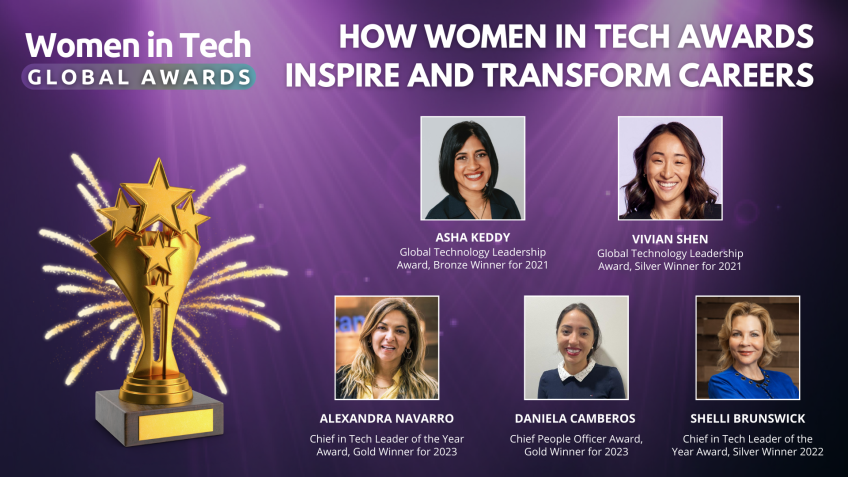The Career Accelerator: Build your confidence, develop your career brand to stand up & stand out at work by Eliana Goldstein
Transform Your Career by Building Confidence through Personal Brand
Welcome everyone from all around the globe! Today, we're diving deep into one of the most critical subjects that can spur career growth - nurturing our confidence by creating robust career brands that allow us to stand out in workplaces.
About the Expert
My name is Eliana, a career and success coach. My passion lies in aiding ambitious professionals to develop the mindset, learn the strategies, and acquire skills to ultimately craft fulfilling careers. Before coaching, I worked in the sales industry in ad tech for nearly ten years.
The Importance of Confidence in the Workplace
Why do we constantly emphasize confidence? Let's consider a few figures related to confidence. According to surveys, 79% of individuals identifying as women claim that they lack workplace confidence. Notably, an overwhelming 98% of employees say their performance improves when they feel confident. Moreover, 96% of workers report that they are more likely to remain with their current company when they feel more confident.
These statistics highlight how career confidence can significantly affect job satisfaction, performance, and even longevity.
Hence, if it's so crucial, what should employees do to build confidence in their workplaces? Among several effective strategies, one of the most pivotal is developing our personal career brands.
Developing Personal Careers Brands
Developing a personal career brand enables us to showcase our value to our companies, teams, and managers, increasing our visibility within the company, which is crucial for growth and confidence enhancement.
Interestingly, everyone already has a workplace brand, since it is simply the perception people have about us. We can either allow it to develop organically, possibly even chaotically beyond our control, or we can shape it to portray us as the individuals we aspire to be.
Identifying Key Elements of Your Personal Career Brand
There are five specific areas to consider when figuring out our career brands:
- Areas of Engagement: These are the tasks or projects we look forward to at work.
- Areas of Disengagement: Opposite to areas of engagement, these are the tasks we least look forward to.
- Zone of Genius: This represents the unique superpowers and skills that make us enjoy our work and feel we are serving a larger purpose.
- States of Flow: These are the tasks during which we are completely immersed and time seems to fly.
- Values: These are our beliefs that determine how we live and work.
These elements can help us identify what we are good at, what we want to be known for, and what we should do more of to build and cultivate our personal brand.
Self-Advocacy and Building Awareness around Personal Career Brands
Once we identify our brand, the next step is promoting it. Here are some practical steps to consider:
- Talk with your manager about your areas of engagement, your zone of genius, and the values you bring to the team.
- Share your brand with internal and external teams. The more familiar they are with your brand, the more they will associate you with specific tasks and projects.
- Identify new projects that align with your zones of flow and engagement. These will also help to strengthen your brand associations.
- Identify bigger goals to work on that challenge you and enable your growth.
A Quick Recap
Despite being a common issue among women in the workplace, lack of confidence can be overcome by building a career brand. By understanding your areas of engagement, disengagement, values, zone of genius, and states of flow, your personal brand formation can begin. Once established, focus on self-advocacy to build awareness around your brand and accelerate your career growth.
Further Questions?
If you have any further inquiries, please reach out to me via email or LinkedIn. I'm thrilled to have the opportunity to connect with you and I hope you've found this article helpful. Let's accelerate our career growth and confidence together!
Video Transcription
All right, welcome everyone. I am super excited to be here. I know everyone is dialing in from different places all over.So welcome, wherever you're calling in from today, we're talking about the very important subject of accelerating our career growth and specifically doing that through building our confidence by developing our career brands to stand up and stand out at work. So I am going to dive right in because I know we have a limited time, quick background on myself. My name is Eliana. I am a career and success coach and I work with ambitious professionals like yourself to really develop the mindset, learn the tools, learn the strategies to ultimately create a career that has you feeling aligned, fulfilled and excited on Monday morning, I'm a big believer that we all are worthy of having that.
And prior to coaching, I worked in the sales industry in ad tech um for almost 10 years across a variety of different online publishers, ad networks as well as start ups before beginning my business. And I've been doing this now full time for about 2.5 years and I absolutely love it and feel very honored to be able to do this work. So why are we talking about confidence today? Why do we constantly hear about confidence in the workplace and how important it really is? Let's look at a few stats around confidence. First and foremost, 79% of women are individuals who identify as women say they lack confidence in the workplace. This of course comes as no surprise.
This is a pervasive issue that so many of us experience throughout our careers. Yet, we also know that 98% of employees say that they actually perform much better when they do feel confident, which comes as no surprise. Of course, we're gonna do better at our jobs, feel more satisfied when we are confident. And beyond that, 96% of workers actually say that they're more likely to stay in their current company when they do feel more confident. So taking these three stats and really seeing that our career confidence directly ties to our satisfaction to our performance in our roles and even our longevity in those roles, right, our ability to really scale and grow. So if we know it's so important, we need to be focusing on what should we be doing as individuals, as employees to begin building our confidence in our careers. Now, there are a number of things that we can do. But one of the most pivotal ways to do it is by focusing on developing our personal career brands. When we're able to really cultivate and develop that brand. We can first and foremost better showcase our value and what we have to offer to our teams, to the company, to our managers.
We're also able to really focus on increasing our internal visibility within our company, which is pivotal to growth and pivotal to really feeling confident in ourselves. We always know that the people who are most visible internally tend to really see that expedited growth.
And then finally, we can really expedite our career paths to career advancement as well as career growth. So we're if we're really clear on what our value is, if we're clear on what we have to offer, if we're getting super visible internally, getting in front of the right people, and then ultimately really expediting this growth. Of course, all these things are going to make us feel more confident. And this all comes from focusing on building those personal brands because here's the thing, every single one of you, all of us already has a brand that's associated with us at work, whether we like it or not. And this quote puts it so perfectly, you can either ignore your personal brand and let it develop organically, possibly even chaotically beyond your control, or you can help massage your personal brand to depict you as the person you want to be. So we have those two choices, right?
And my guess is if you are here, you are choosing the latter where you want to control the narrative, control how your brand is viewed. So let's talk about how we do that. There are five specific areas that I like to focus on to help us each determine our own career brands. Our values are areas of engagement, areas of disengagement zone of genius and states of flow. So let's dive into the first our areas of engagement. These are the projects and tasks that we look forward to the most at work on a daily weekly or even monthly basis that we all have components and aspects of our work and our jobs that we actually really enjoy. So we want to really discover and understand what those are. Few examples. Maybe it's in team meetings specifically when you have to present, maybe it's externally facing when you're doing brainstorm sessions with clients. Maybe you prefer autonomous work, building out new internal processes, creation of decks and proposals.
It's going to vary completely from person to person. On the other end of the spectrum, we have areas of disengagement. These are the projects and tasks that we look forward to the least at work on a daily, weekly or monthly basis. And you'll see here that I use the same examples because what's very engaging for one person can be disengaging for another person. And it's all about starting to bring that self-awareness to our every day to really understand. What do I like? What do I enjoy? What do I want to do more of and what do I to an extent want to take off my plate if I am able to. Now we have zone of genius, which is, I'm sure a word so many of us have heard, but I really interpret this and think of it as your unique superpower where you're doing work that you're naturally good at, innately good at that you enjoy and that you also feel like serves a larger purpose that you're making that type of wider impact that so many, so many of us really crave in the workplace.
So you'll see here from some of these examples that zone of genius is a little bit more zoomed out, a little bit more holistic almost the problem you are solving when you are operating from that superpower part of yourself. So for example, maybe it's really that you just rock at creating processing that bring order to a disorganized situation or maybe it's reviewing problems from every angle so that you can create a more efficient way to reach the end result. You guys see here that these are really just describing a problem solving skill set that you might have. And this is really your superpower. Then we have states of flow. This is where we're performing tasks that we're just so completely immersed in time, just flies. And when we're doing work and get into states of flow, we tend to produce higher quality work because we're so in the zone and we're not distracted. So the more we can get into states of flow, the more we can really cultivate and produce that high quality work and enjoy what we're doing at the same time. So a couple of examples of states of flow, sometimes it can be, this can be a little bit more back end stuff, whether it's backend Q and A, analyzing and compiling data, pulling that relevant patterns, doing those pivot tables, maybe it's, you know, schedule creation, you work in events when you do a run of show, you just get so into it.
These are all a few different examples to help you guys start thinking and brainstorming for yourselves. And then finally, we have values. These are the things that you believe are really important in the way that you live and most importantly for today's sake in the way that you were right. We're thinking about workplace values here. So a couple of examples of workplace values maybe for you, it's just that collaboration, right? You value collaboration, working in that atmosphere with other people where you can brainstorm and all come together to think. Maybe on the opposite end, you're someone who really values autonomy, being able to be trusted and work on your own is super important to you. Maybe it's recognition, you're someone that needs to work in an environment where your work is recognized where you feel like you get that reception and that feedback that you really desire and crave. So we really want to think about what values are most important to me in the workplace and what is going to make me feel good.
So what's the significance of these five areas by using these things to basically do a deep dive into ourselves and into our career personas. We're able to really reflect and start aggregating information across these five areas. And this allows us to specifically articulate first and foremost, what we are good at IIE are areas of engagement and our states of flow. When we think of about personal branding and what our brand should represent, we want it to be associated with the things that we're really good at, right? So that when people think of, oh yeah, you know, schedule creation, I'm going to Sarah for that like that is that is her thing, right? So we want to get clear on this so we can really get a sense of what it is that we're good at and then also what we want to be known for what we want the associations to be between ourselves and this brand that we have created. And in this situation, it's really our zone of genius and our values. That's what we want to be known for. We want to have that clear zone of genius that somebody knows if this is a problem I need to solve.
Sarah is the person that I'm going to right? That when we think about things like creativity, collaboration, Sarah is the person that keeps popping into our head. I keep using this Sarah as an example. And then once we have this clear idea of our brands, we move on to what we want to do more of right now, we can go to the next level. I know what I want to do. I know what my brand stands for. I want to do more for that. I wanna allow that brand to create even deeper associations with that type of work. And we can allow ourselves to really challenge and challenge, be challenged and to be able to grow right now. We know this is what I want to do more of. I can really get to the next level at this point. So we've started building our brands and have awareness around what it is, but it's not just enough to have a brand. We have to actively put that brand out there, build the awareness around it, right? Starbucks, Starbucks and Nike don't just sit there once they've developed a brand, they run marketing campaigns, they run advertising, we need to create those campaigns for ourselves so that key stakeholders at our companies, managers, senior leadership outside teams are aware of our brands as well.
And we do this through the process of actively self advocating on behalf of our now personal career brands. So what does that look like? First and foremost, the first thing we want to do is always sit and have a conversation with our manager. Share your findings. Where are you super engaged? What is your zone of genius? What values are important to you on the team and in the workplace, create that open conversation and that open communication with your manager and, and let them know, this is what you've been thinking about as you've been reflecting, get their feedback. This is how I see myself.
Is this how you see me? Are there ways that you think I can lean into this into this, you know, brand association more. We really want to start having that open conversation and make sure our manager knows, hey, these are the things that we want to do. This is what I want to grow within so they can help us do that and really create that plan, share our findings with internal and external teams. So who are the people you work with on a daily basis? Whether it's on your direct team, whether it's cross functionally on another team letting them know? You know, this is what I love doing, tap me in for projects of this nature. Is this how you see me? Is this what you associate with me? Right? Again, kind of cross referencing it to really see how others are seeing you. And so that you can really cultivate the image that you want for yourself. We can then also identify new projects to work on now that we know where we get into states of flow. Now we're that we know where we are really engaged again, we can raise our hands and say, I know this project is coming down the pipeline. I wanna volunteer, I wanna do that. Not only does that allow us to do work that we really enjoy, but now we create stronger brand associations between ourselves and that type of work, right? And that's how we get super visible internally.
That's how we really grow and we can also identify bigger goals to work on as well. So now we really have a sense of hey, I love presenting in front of small groups. Maybe my next challenge is that I'm gonna start presenting in front of larger groups, right? We get out of our comfort zone. That is really how we challenge ourselves. That is really ultimately how we grow. So just to quickly recap before we go into Q and A, we talked a little bit today about this idea of lack of confidence. It's an issue that so many individuals who identify as women really feel and it affects our career satisfaction, our performance and our longevity. And one of the ways to counteract that is by building a career brand and really being able to build that confidence and control our own brand narrative. There are five areas we can begin doing this, uncovering our areas of engagement, disengagement, value zone of genius in and states of flow. And then finally, once we uncover our, our brands, we then focus on self advocacy. We build awareness around that brand, talking to our managers, talking to other team members to really focus on fulfillment and then really growing and scaling within our careers. So thank you guys so much for being here, please.
If you have any questions, reach out to me over email, connect with me on linkedin Instagram. I am thrilled to have been able to speak with you guys today and really hope that you found this to be helpful. So with that, I am going to close out and open four questions.





